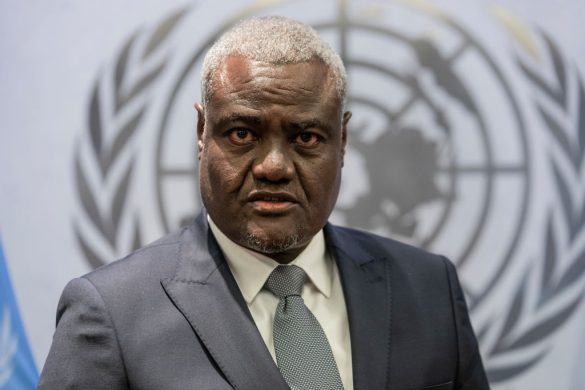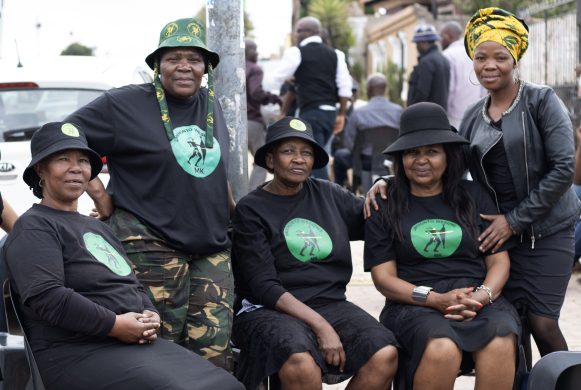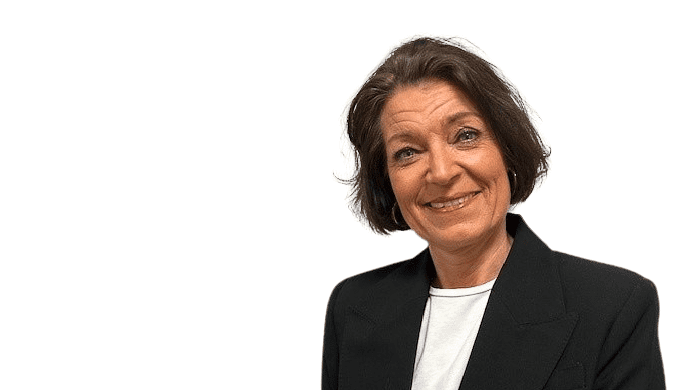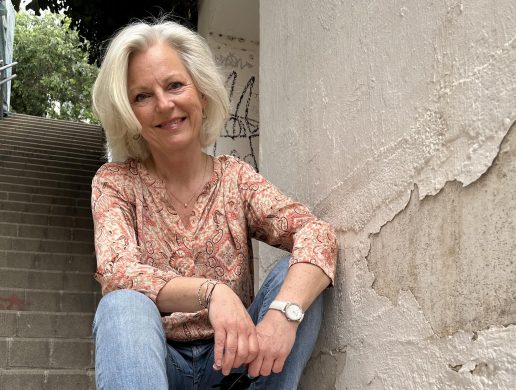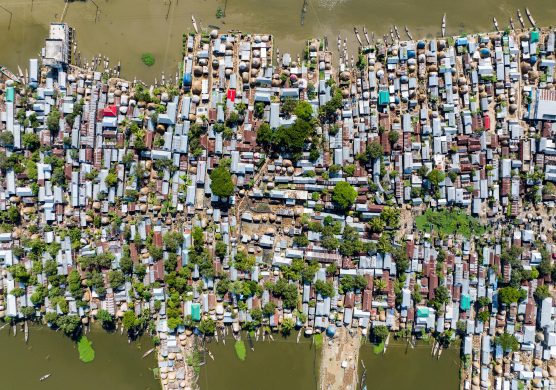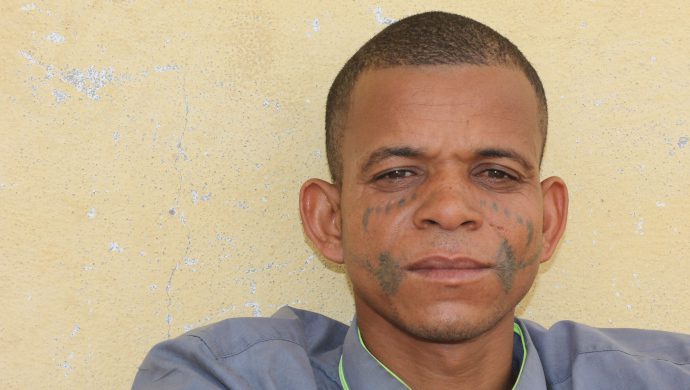Mandag (01.09.14) får FN ny menneskerets-chef, når den jordanske topdiplomat, prins Zeid Ra’ad Zeid al-Hussein, tager over som Højkommissær for Menneskerettigheder efter sydafrikaneren Navi Pillay, der har beklædt den betydningsfulde post i Geneve i seks år.
En post, som Danmark kæmpede ganske indædt for i FN tilbage 1970erne og som endelig blev virkeliggjort i 1993 efter langvarige tovtrækkerier.
Prims Zeid (50) bliver den syvende i rækken på den ofte utaknemlige post i en verden, hvor grundlæggende rettigheder krænkes i stor stil uanset alle fremskridt.
Se historien bag FNs Højkommissariat for Menneskerettigheder på http://www.ohchr.org/EN/AboutUs/Pages/BriefHistory.aspx
Hundesvært job
Han skal lede hele sekretariatet (OHCHR), der har haft konstant vokseværk i størrelse, indflydelse og forpligtelser over de snart 21 år det har eksisteret.
Danidas magasin, “Udvikling”, skriver i sin seneste udgave, at han “skal lære at bemestre den svære balancegang mellem på den ene side at understøtte kravene fra det politisk drevne Menneskettighedsråd, og på den anden at rappportere selvstændigt og uafhængigt til generalsekretæren og kunne råbe op – også når det er ubelejligt for FN”.
Menneskerettighedsrådet, der kom til i 2006, har ofte været under ild for enten at være for bovlamt eller gå for vidt (ingen af de fem nordiske lande sidder p.t. i rådsforsamlingen på 47 medlemmer).
Mere om Rådet på http://da.wikipedia.org/wiki/FN’s_menneskerettighedsråd (man må desværre selv kopiere linket da bogstavet “å” optræder)
Et af de store stridspunkter har været retten til at kritisere religioner, som bl.a. flere arabiske lande søger begrænset.
Selv om prins Zeid beskrives som dygtig, populær og kendt har der allerede rejst sig enkelte skeptiske røster i Vesten mod at få en araber i netop dét job – se http://www.foreignpolicy.com/articles/2014/06/26/the_scandal_of_ambassador_zeid
Her er Rådets officielle website – se http://www.ohchr.org/en/hrbodies/hrc/pages/hrcindex.aspx
Om venner, der måske snart ikke er venner mere
FNs Nyhedsteneste skev, da prins Zeid blev udnævnt:
“I am going to be the first High Commissioner from the Asian continent and from the Muslim and Arab worlds,” Prince Zeid said after the 193-member UN General Assembly approved his appointment by consensus in June.
“Needless to say this reflects the commitment of the international community towards this important dossier and its commitment to push it forward in this continent as well as in other regions of the world,” he added.
After the world body approved his nomination by applause, Prince Zeid joked:
“My supportive wife told me to enjoy this moment, to soak it all up, after all, she said, you are among friends who you have known for a very long time. Because when you start this job, she added, you may not have them for very long.”
Mandatet i Geneve og afskedsord fra Pillay
Headquartered in Geneva, the Office of the High Commissioner for Human Rights (OHCHR) is mandated to promote and protect the enjoyment and full realization, by all people, of all rights established in the UN Charter and in international human rights laws and treaties.
The mandate includes
* preventing human rights violations,
* securing respect for all human rights,
* promoting international cooperation to protect human rights,
* coordinating related activities throughout the UN, and
* strengthening and streamlining the UN system in the field of human rights.
In addition to its mandated responsibilities, the Office leads efforts to integrate a human rights approach within all work carried out by UN agencies.
Man kan læse Navi Pillays afskedsinterview med FNs Nyhedstjeneste på http://www.un.org/apps/news/newsmakers.asp?NewsID=110
Her siger den nu 72-årige kvinde bl.a.: “Jeg tror ikke, der er nogen stat i verden, som undgår minusser i sin menneskerets-karakterbog. Der er problemer af den ene eller anden art i hvert eneste land”.
Mere om prins Zeid bin Ra’ad
(fra internet-leksikonnet Wikipedia)
Spouse (hustru) Sarah Butler
Dynasty Hashemite dynasty
Father Prince Ra’ad bin Zeid
Mother Margaretha Inga Elisabeth Lind (Swedish)
Prince Zeid Ra’ad Zeid Al-Hussein was born 26 January 1964 in Amman, Jordan.
From 2007-2010 he served as Jordan’s Ambassador to the United States and non-resident Ambassador to Mexico. He is also pretender to the Iraqi throne.
Prince Zeid was educated at Reed’s School, Surrey before gaining a B.A. in 1987 from Johns Hopkins University. He received a Ph.D. from Christ’s College, Cambridge University in 1993.
Prince Zeid is (untill now) Jordan’s Permanent Representative to the United Nations, a post he held previously for six and a half years from 2000-2007.
He also served as Jordan’s Deputy Permanent Representative at the UN, with the rank of Ambassador, from 1996-2000.
In January 2014 he was president of the UN Security Council and is presently chairman of the Security Council’s 1533 and 1521 committees with regard to two sanctions regimes: the DR Congo; and Liberia.
From 16 September 2010 to 7 March 2012, Prince Zeid was the Chairman of the Country-Specific Configuration (of the UN Peace Building Commission) for Liberia. He also chaired the search committee for the selection of the second prosecutor of the International Criminal Court in 2011.
With reference to the International Criminal Court and from 1996-2010 he was:
* President of the Assembly of State Parties to the Rome Statute of the International Criminal Court (2002–2005).
* Chairman of the informal negotiations on the ‘elements’ of the individual offenses falling under the crimes of: Genocide, Crimes Against Humanity and War Crimes(1999-200).
* Chairman of the Working Group on the Crime of Aggression at the Review Conference of the Rome Statute in Kampala (June 2010).
While at the UN (1996–2006) he further chaired the Consultative Committee for the United Nations Development Fund for Women (UNIFEM) from 2004–2007 and, from 2004–2006, he was the ‘Advisor to the Secretary-General on Sexual Exploitation and Abuse in UN peacekeeping.’
He served as a political affairs officer in UNPROFOR in the former Yugoslavia from February 1994 to February 1996.
In 1989, he received his commission as an officer in the Jordanian desert police (the successor to the Arab Legion) and saw service with them until 1994.
He was also a member of the World Bank’s Advisory Council for the World Development Report 2011.
Personal life
Prince Zeid is the son of Prince Ra’ad bin Zeid head of the Royal Houses of Iraq and Syria. His paternal grandmother was the renowned Turkish painter Princess Fahrelnissa Zeid who was married to Prince Zeid bin Hussein.
Prince Zeid was married on the 5 July 2000 in Amman to Sarah Butler, henceforth called Princess Sarah Zeid, who was born in Houston, Texas, on 1 August 1972.
Together they have three children:
Prince Ra’ad – born 17 May 2001
Princess Hala – born 13 March 2003
Princess Azziza – born 13 July 2009
Uddrag af hans biografi fra FN:
Throughout his service at the UN, Prince Zeid has undertaken a number of special responsibilities relating to the following issues: international justice, UN peacekeeping and women’s development.
An expert in the field of international justice, he played a central role in the establishment of the International Criminal Court. He chaired, for example, over the course of two years, the complex, often pioneering, negotiations on the ‘elements’ of the individual offenses falling under the crimes of: Genocide (folkemord), Crimes Against Humanity and War Crimes.
Subsequently, in September 2002, Prince Zeid was elected the first president of the governing body of the International Criminal Court, at a time when the Court was only a plan on paper, with no officials or even an address to its name and, in three years, oversaw the Court’s growth into the institution it has now become.
He has also been active on other legal issues.
He was the first of two UN ambassadors to chair the Ad Hoc Committee on the Scope of Legal Protection under the Convention on the Safety of United Nations and Associated Personnel.
And in the spring of 2004, he was chosen to be chairman of the ‘Panel of Experts for the UN Secretary-General’s Trust Fund to Assist States in the Settlement of Disputes through the International Court of Justice’, in the matter relating to the boundary dispute between Benin and Niger.
Earlier that year, he was also appointed by his government as Jordan’s representative, and head of delegation, before the International Court of Justice in the matter relating to the wall being built by Israel in the Occupied Palestinian Territories.
Having served as a political affairs officer in UNPROFOR in the former Yugoslavia from February 1994 to February 1996, and, having worked intimately with peacekeeping issues for over the last decade – for several years as the coordinator of the Non-Aligned Movement – Prince Zeid’s knowledge of UN peacekeeping is also extensive.
Following allegations of widespread abuse being committed by UN peacekeepers in the summer of 2004, he was appointed as ‘Advisor to the Secretary-General on Sexual Exploitation and Abuse.’
In the spring of 2005, he produced a report on this subject; which provided, for the first time, a comprehensive strategy for the elimination of Sexual Exploitation and Abuse in UN Peacekeeping Operations. The report was endorsed in full, by the 191 Heads of State and Government, in September 2005.
His publications include:
‘A Nightmare Avoided: Jordan and Suez 1956’ in Israel Affairs (Winter 1994), and ‘Religious Militancy in the Arab Middle East: Threats and Responses 1979-1988’ in the Cambridge Review of International Affairs (Spring 1989).



